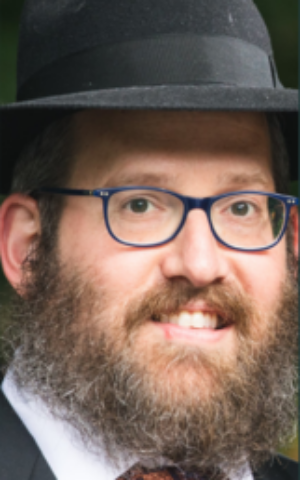Israeli Families Coming to Atlanta for Rest, Relief
Mission is to host and support 300 traumatized and displaced families.

The Atlanta Israeli and Jewish community have opened their arms to welcome, support, and help heal surviving families of the deadly Oct. 7 Hamas attack near the border of Gaza.
Already, five families consisting of 23 people have arrived in Atlanta thanks to the organizing skills of over 100 local Israelis as well as generous funding from a number of sources. An orientation for the first families was held Sunday, Nov. 12. Another half-dozen families will arrive in Atlanta by Nov. 20.
The goal is to welcome as many as 300 Israelis to Atlanta for as much as two months of rest and rehabilitation, followed by assistance with reintegration back into Israel. According to Meir Matana, who spearheaded this massive effort, no other city has imagined, then actualized, such a project, and in less than one month. Thinking bigger, Matana hopes to expand the program nationwide.
Titled “Mission: Embrace Israel,” the project’s tagline is “healing and rebuilding Israeli families attacked by Hamas with psychological and financial relief.”
“The whole Israeli community [in Atlanta] said they needed to do something after hearing about the families in Israel who are going through so much, and are not getting all the help they need,” said Rabbi Menachem “Mendy” Gurary, at the Chabad Israeli Center.
Just days after the Oct. 7 attack by Hamas on dozens of communities along the Gaza border, as well as a couple of Israeli army bases and participants at a nearby outdoor music concert, Matana, an investor in real estate and technology companies who has lived in Atlanta about 14 years, “learned that Mendy was trying to do the same thing, so we hooked up.” Together, with the help of dozens of Israelis in the community, they have organized a major operation that entails receiving applications from Israeli families, approving them, helping them travel to Atlanta, hosting them and providing them with a daily program at the Chabad Israeli Center. That program will include teaching, activities, mental support, and meals.
Hundreds are applying, Matana told the AJT. “The criteria require that the families are those who have been evacuated from the villages attacked on Oct. 7,” he said.
Many of those villages are not inhabitable after the Hamas terrorists murdered mostly civilians on the streets, at bus stops, in their homes and in the community dining rooms and then burned down some of the homes.
In addition to the 1,200 people murdered in the attack, some 240 were taken hostage by the terrorists. Matana said the immediate family members of those hostages might not be willing to leave Israel as they await news of their loved ones, but cousins, neighbors and hundreds of other families who hid in their safe rooms for hours are still traumatized by the experience. Many have been moved to hotels at the Dead Sea or in the resort city of Eilat, with only the clothes on their backs and no money or belongings. Those are the families that Mission: Embrace Israel and its cadre of volunteers are targeting to bring to Atlanta.
Israeli media report that there are 150,000 internally displaced people in the country, some from near the Lebanese border and some from the nearly destroyed communities near Gaza.

“There is no shortage of demand for what we’re offering,” said Matana. “We are trying to give them a more relaxed setting” for a couple of months. The families don’t plan to stay here, he added.
Families are being screened and interviewed via Zoom. “There are hours of conversations involved,” said Rabbi Gurary. “We make sure they have the necessary visas.” Plane tickets are then acquired for the family members and host families are found for them. The plan is to provide lunches and dinners every day for the Israeli families while they are here.
“We are hiring a chef for onsite and working with kitchen helpers,” said Gurary, who emphasized that the organizers are trying to do everything as efficiently as possible.
“It’s on a 100 percent volunteer basis,” said Matana, with seven or eight categories or committees responsible for finding host families, arranging mental health support, and providing supportive educational options for the children. “There’s someone leading a team to help the families shop.”
Shely Parness, who is one of the founders of this mission and is also in charge of the volunteers, said they “are divided into groups with one volunteer as the head of the group.”
Matana said more volunteers are needed, including host families and drivers.
Although the volunteers are doing the work, the entire operation costs money. “We need over $1.5 million,” said Gurary, who has established a separate bank account, but allows donors to contribute through the Chabad Israeli Center’s 501(c)3 tax exemption. (To volunteer or contribute, go to www.missionembraceisrael.org/)
Already, several people have pledged donations for the effort, including from Chabad in New York, the rabbi noted.
“It’s amazing to see how the community” has come together to help, Gurary added. Matana said they prefer host families who speak Hebrew to some extent, especially for families that include younger children who don’t yet know English. “Some of the families have never been to America.”
Matana emphasized two major components of the assistance that will be provided to these traumatized families. The first is a camp-like program for children that will be held at Chabad Israeli Center from about 11 a.m. to after dinner, Monday through Thursday. Fridays will be half day. There will be all kinds of educational activities, depending on the age of the child. Some teenagers who have been schooled via Zoom, might be doing their homework.
This program will also allow parents to have a much-needed break. “They have been living in one or two rooms in the past month,” said Matana.
The second component is mental health support, Matana said, emphasizing how the Israelis experienced immense trauma on Oct. 7. Volunteer Dr. Shany Cohen-Sadan, an Israeli doctor who has lived in Atlanta about nine years, took on the responsibility of “organizing and managing” medical providers. “We have a long list of physicians, of all specialties, lined up,” she said. “That’s how I started and then we realized that we needed mental health specialists as well.” Now, she has psychologists, social workers, therapists, and a few psychiatrists. The families are coming with only tourist insurance, so most everything will be provided pro bono.
Explaining its goals, the organization stated that “while families will be responsible for their medical insurance, we are providing travel expenses, housing, transportation and other allowances they may need (clothing, hygiene products, etc.). In addition to that, we are collaborating with the local partnering organizations to provide additional education to the children, as well as leisure activities for the entire family.”
This effort is only taking place in Atlanta, according to Matana, who said that his sole focus right now is this project. “We are on the verge of a mitzvah.”
Matana said that the Israeli American Council (IAC) also supports this mission, focusing on the visiting families. Ayelet Sery, co-founder and an IAC national manager, said the organization plans to provide the families full access to all its programs and activities, including its Keshet program for kids and Eitanim for teens.
Gurary said the Marcus Jewish Community Center of Atlanta has offered free memberships for the families and the Jewish Federation of Greater Atlanta is helping with the schools.
According to Renee Kutner, the Federation’s chief operating officer, “We have surveyed our pre- and day schools about new families and the additional expenses the schools have incurred. Once we get a baseline of information, we will determine how we can best support the schools in this work.” She added that the Federation convened the day school heads to discuss supporting displaced Israeli families. “It’s a moving target as the needs keep evolving.”
Matana said he sees this program evolving as more families – possibly including those displaced from Israel’s northern border as well – apply and come to Atlanta. And the program could last “until the end of next year. We’ll see. The limit is the budget.”



comments